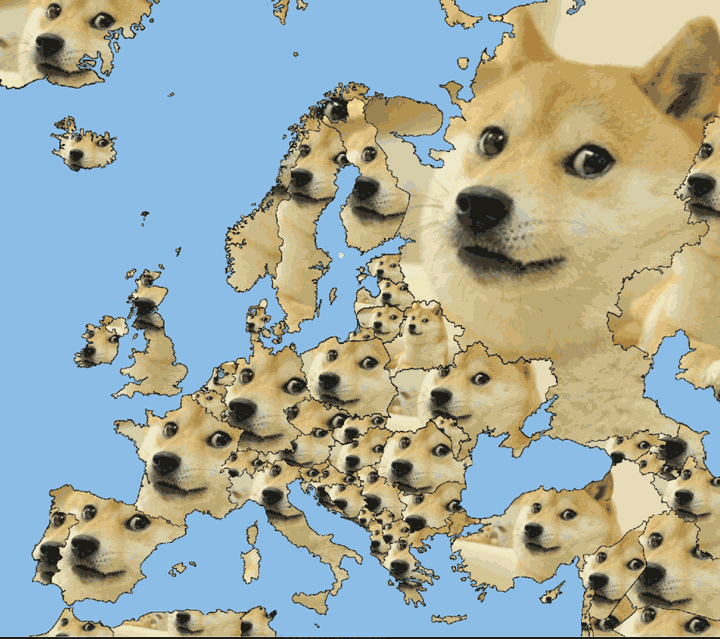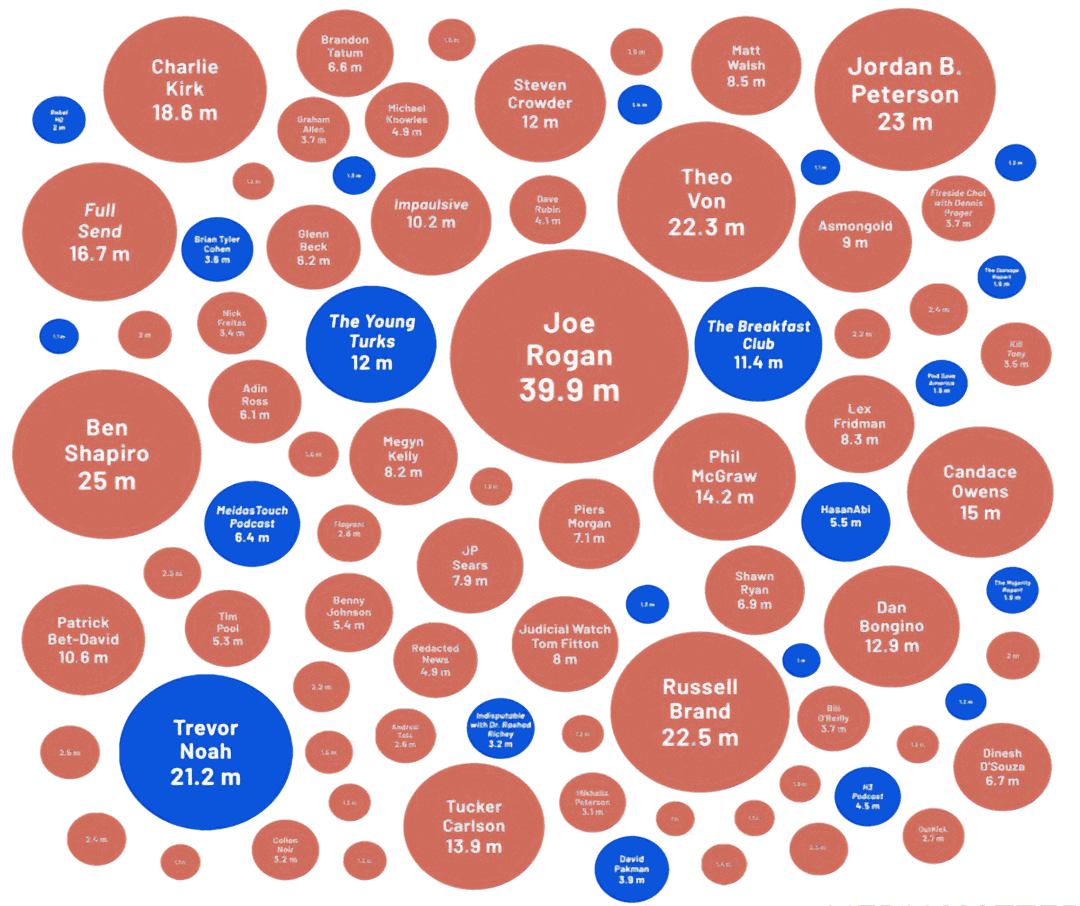Beyond the Doom Loop: Crisis, Control, and the Crooked View of the Future

Tragedy trends and outrage sells. Those who profit from this dynamic - and design the machinery behind it - know it intimately. Amid the turbulence, people naturally seek clarity and orientation.
Half-baked visions of the future thrive in this context, soothing current anxieties through simplified promises of technological abundance and escape. These ideas, often grouped under the umbrella of techno-authoritarianism, are articulated through a fluid synthesis of libertarian rhetoric, ethno nationalist ideology, and authoritarian populism. Among many other things, their framing attempts to translate complexity as inefficiency and, paradoxically, authoritarian control as an inevitable march of progress.
Reclaiming the narrative requires highlighting stories grounded in real human experiences and needs, paired with more convincing alternatives on what might come next.
The Message: Kingdom, State, (Closed) Network.
You can go back further, but 2010 - two years after the global financial crisis - is a useful starting point. If you were a free-market idealist dreaming of a post-state future, where markets reigned supreme and governance was entirely replaced with code, there was only one destination: Libertopia, San Diego. Set in the pink void of a small hotel conference room, the two-day event felt less like a libertarian uprising, and more like a polished gathering of policy hobbyists - stuffy, filled with subdued applause, and oddly weightless.
Among the keynote speakers that weekend was Peter Thiel, a then emerging force in Silicon Valley, PayPal co-founder and the architect of Palantir (the big data analytics company ominously named after the all-seeing stone in The Lord of the Rings).
Thiel’s 45 minute speech fused tech-world pragmatism with accelerationist overtones. Invoking the mythic language of civilisational decline and rebirth, he claimed the current world order was terminally in crisis. In Thiel’s view, the only path forward lay not through political reform, but through technological transcendence and its unapologetic dominance over humanity. Technology, he argued, would eventually render politics irrelevant.

This emerging worldview took shape on the fringes of libertarian thought and, over the following years, overlapped with other reactionary figures like Curtis Yarvin and Nick Land. Drawing on a range of conservative thinkers, Yarvin was a particular fanboy of Victorian-era radicals like Thomas Carlyle, advocating for a post-democratic order led by a technocratic elite. Land, a self-ascribed accelerationist, argued that technological intensification should be embraced as a way to break through the inertia of liberal democracy. Once confined to obscure corners of internet discourse, it established the backbone of the so-called Dark Enlightenment - a niche online movement that rejected egalitarianism in favour of hierarchy, control, and velocity.
Their ideology, like Thiel's, was rarely declared outright. Instead, their values, talking points, memes and ideas were distributed organically through a complex map of online subcultures - spanning crypto, fitness and hustle culture - to more overtly ideological spaces in the manosphere or far-right activism. The blend of cynicism, futurism, and a silicon valley confidence, resonated during a time of economic collapse and political fatigue. In these porous spaces, the clashing ideologies and contradictory aesthetics were unified by a recurring mood: institutional distrust, personal disempowerment, and a desire for independence or escape.
In the years since, it has quietly evolved from the fringe into a more foundational logic and new mode of governance. The convergence of tech wealth and political power in the United States has reshaped not just their national governance but the global democratic landscape. As billionaire-led platforms expand their influence, the ideology once confined to fringe techno-libertarianism and ethno-nationalist online spaces now drifts closer to the political mainstream, subtly enabling a more illiberal mode of governance.

Europe and the United Kingdom, especially, can no longer afford to play a reactive role. In 2025, these amorphous narratives are gaining traction, subtly and sometimes overtly reshaping public opinion. The region now faces growing pressure to serve as a counterweight - not only to digital interference and political manipulation, but to a wider ideological drift toward privatised power and post-democratic governance. While the links between U.S. tech elites and UK/Euro far-right populism remain informal, the influence is real: a shared language of disruption, inevitability, and innovation now travels across platforms. How governments and institutions respond will help shape not only their own democratic futures but the broader conditions for civic space and rights worldwide.
Sustained uncertainty is going to be the norm it seems. This is where simplified visions of the future tend to gain momentum. Narratives promising escape resonate, not because of the merits of the idea, but the psychological relief they offer. They don’t just promise wealth or renewal; they offer clarity through an artifice of community and an illusion of inevitability.
A pressing need now is to offer a clearer message of where we go next , and how technology might better serve collective needs. That shift starts by understanding how these reactionary views take hold online - how they travel, and why they resonate.
The Machine: The Doom Loop.
“By the end, I watched hopelessly as they sucked up to authoritarian regimes like China’s and casually misled the public. I was on a private jet with Mark the day he finally understood that Facebook probably did put Donald Trump in the White House, and came to his own dark conclusions from that. But most days, working on policy at Facebook was way less like enacting a chapter from Machiavelli and way more like watching a bunch of fourteen-year-olds who’ve been given superpowers and an ungodly amount of money, as they jet around the world to figure out what power has bought and brought them..”
- Sarah Wynn-Williams, Careless People: A Cautionary Tale of Power, Greed, and Lost Idealism
One of many revealing passages from Sarah Wynn-Williams’ recent memoir, exposes the internal dysfunction and culture at Mark Zuckerberg’s Meta. It also gestures towards the deeper structural logic pervasive across most of big tech today: vast influence, moral detachment and little democratic accountability. By now, there is quiet consensus that platforms are central to shaping political consciousness. And while tech leaders have often resisted that responsibility, the political sway of their platforms is undeniable.
Today, we live in an environment that moves closer to Thiel's worldview, one where trust in traditional institutions has given way to an over reliance on privately owned technology as the new architecture of authority and control. With A.I's growing dominance, this trajectory will accelerate further, seamlessly embedding ideologies into platform behaviour and incentives.
The Cambridge Analytica scandal was a noteworthy moment in public awareness around the effects of social media platforms. It revealed how behavioural profiling and targeting could be used not only to sell products but to sway political identity and decision-making. It represented a deeper shift from broad persuasion to at scale data-driven behavioural engineering, where emotional cues and personal data were strategically aligned to steer belief and action in moments of vulnerability.
One psychological framework closely observed during this period was Terror Management Theory (TMT). The theory explains how reminders of mortality deeply shape human behaviour, typically by strengthening attachment to cultural worldviews, identities, and sources of meaning that provide a sense of stability. Research shows these responses are deeply influenced by social and cultural context. While they serve to buffer existential anxiety, they can also, under certain conditions, intensify polarisation, prejudice, and other socially harmful dynamics.

A decade after Cambridge Analytica, frameworks like TMT, alongside other models of behavioural influence, are no longer confined to targeted political or commercial campaigns. They have become embedded in the very architecture of platform engagement, shaping how most information is produced and consumed globally. The COVID-19 lockdowns popularised the term ‘doomscrolling,’ a fitting shorthand for the intensified dynamics of anxiety-driven, compulsive media consumption that these systems effectively amplify.
In this context, reactionary content travels fastest and authoritarian messages, framed as protective or restorative, find fertile ground in feeds saturated with emergency. Within this logic, a growing ecosystem of influencers now accelerate the effects: turning anxiety into engagement, clout and financial reward. And In the age of AI, the capability to scale this content has increased exponentially.
The Messengers: Hustlers of Hegemony
The mid-tier, right-wing Youtube podcaster Tim Pool, who began as a vlogger covering Occupy Wall Street, is now part of the Trump press corp establishment. He's also been part of a U.S Department of Justice indictment. The 2024 case alleged that Russian state media funnelled funds through a shell company to pay U.S. individuals like him to promote pro-Kremlin talking points and messages. He denies any knowing involvement and claims the allegations lack concrete proof. Yet, regardless of the legal outcome, the case highlights something deeper: the extent to which online influencers have become embedded in the machinery of global soft power, seamlessly navigating between ideological trends, commercial platforms, and geopolitical forces.
Pool’s journey, from live streaming the Zuccotti Park Occupy protests in the 2010s, to becoming a central figure in the MAGA media sphere, traces a now-familiar trajectory. Beginning with countercultural curiosity or grassroots activism, many of these figures gained early online followings through coverage of movements critiquing power structures. But disillusionment with liberal institutions - often framed around censorship, hypocrisy, or cultural alienation - led them into alternative spaces that cultivated provocation and rebellion. These fragmented online environments (at that time covering Youtube, Facebook, Reddit, Twitter and 4chan ) increasingly fostered linked ideologies anchored in grievance, personal sovereignty, cultural nostalgia, and techno-utopian ideals.

In the present sphere, according to a recent report from Media Matters of America, U.S right-wing podcasts and online shows (mostly on the fringes of the spectrum) now dominate engagement across nearly all major platforms. On YouTube, the top ten political creators lean overwhelmingly conservative, regularly eclipsing their progressive counterparts in reach and engagement. A similar pattern emerges on TikTok, where a decentralised network of content creators, often positioned initially as apolitical, frequently embed reactionary talking points aligned with far-right agendas
It’s worth noting that although the report focuses on the US media environment, the reach and following of these channels is global.
Not incidental is the absence of serious interlocutors or countervailing voices in many popular online shows. These formats are rarely structured for debate and tend to reward affirmation over challenge. That lack of opposition reflects both the tone of the ecosystem and the fact that speaking to your own bubble is far less risky than opening up space for dissent. On the flip side, many high-profile figures hesitated to appear on such shows when invited, wary of the format or unsure of the outcome. Either way, that absence has left space to figures who know how to amplify grievance into engagement and profit.
These are the new messengers. And their voices travel faster, louder, and further than most institutions can follow.
The Challenge
To recap: A dominant vision on offer, represents a fully automated future built around the promise of abundance that masks authoritarian control. Sold through platform mechanics that optimise for grievance, reward emotional engagement, and are amplified by a rotating cast of online personalities, trolls and shit-posters.
Perhaps this all collapses under its own weight - or we continue drifting further into something increasingly difficult to reverse.
Resistance matters. But on its own, and in the context of increasing platform noise, it often reinforces the very narratives it seeks to oppose. The real challenge is to communicate a different kind of future that displaces the false promise. One that can be plausibly believed in.
To more effectively inspire support in this space, it helps to focus on what we already know can work. Many NGOs, political movements and campaigns we've worked with have developed narrative strategies that cut through - strategies grounded in practice and experimentation. The task now is not to reinvent, but to build on what’s already showing promise.
if we work back from the principles tested across the sector, there are various ways we can counter these narratives more effectively
Pair resistance with orientation. In times of crisis, platform feeds overflow with noise. While many organisations respond quickly, few consistently link their calls to action with a longer-term vision. What cuts through is not just critique, but a steady sense of direction.
Show the builders of the future, not just the victims. Amplify those testing new models, building positive alternatives, and creating collective solidarity. Stories of lived, positive change offer not only hope but proof that another future is possible.
Pre-empt distortion. Far-right influencers gain ground by misrepresenting progressive ideas or making reductive arguments. Use inoculation theory: name the trade-offs, flag common mischaracterisations, and explain your case before others twist it. By leveraging social listening tools more strategically, you can identify emerging narratives at an early stage and refine your messaging with greater precision.
Narrate momentum. Treat communications as a series, not one-offs. Revisit themes, return to characters, and build familiarity over time. People are more likely to engage with stories they can follow.
Develop and nurture your network of messengers. Audiences connect more easily with people than organisations. Support aligned communities and creators who can share your message authentically. Peer-to-peer trust is powerful. Invest in those already earning it.
Ultimately, we don’t need to match the spectacle or pace of the forces we oppose. What’s needed is a different kind of momentum - one grounded in trust, relevance, and a deeper sense of collective purpose. The most powerful narratives aren’t always the loudest. They are the ones that build coherence over time, make participation feel possible, and help people recognise themselves in a future that feels worth moving toward.
Connect

Connect

Connect




